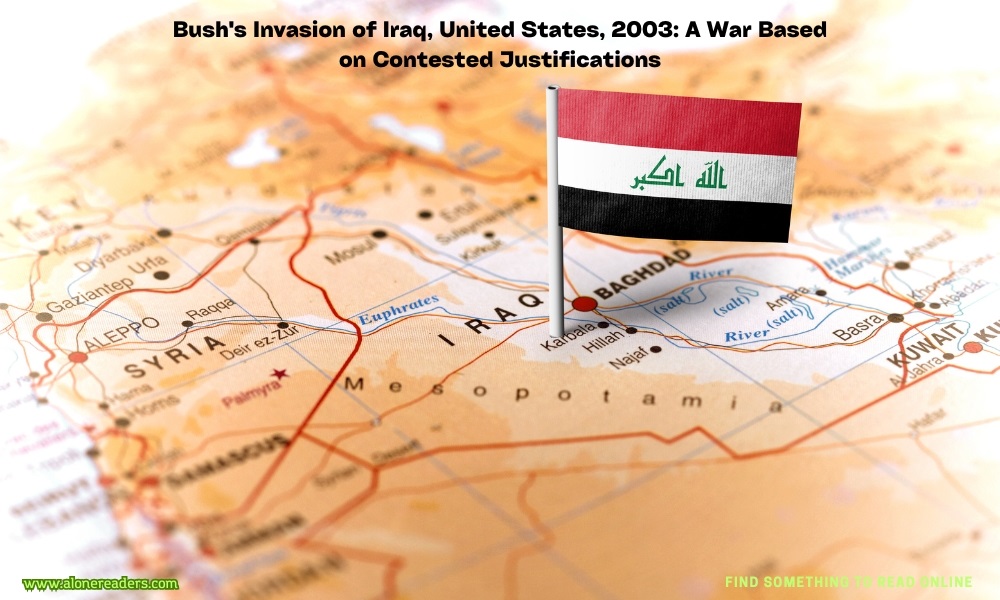
In March 2003, the United States, under the administration of President George W. Bush, launched a military invasion of Iraq, a pivotal event that continues to provoke intense debate and analysis. This decision was primarily justified by the assertion that Iraq possessed weapons of mass destruction (WMDs), and thus posed a significant threat to international security. Additionally, the Bush administration claimed that overthrowing Saddam Hussein would promote democracy in the Middle East and make the world a safer place. However, these justifications were met with skepticism and controversy, both domestically and internationally, and the subsequent developments have had profound implications.
The primary justification for the invasion was the alleged existence of WMDs. The intelligence presented to support this claim was later found to be flawed. Key pieces of evidence, such as reports about mobile biological weapons labs and attempts to purchase uranium from Niger, were discredited, raising serious questions about the reliability of the intelligence and the motivations of those who promoted it. The failure to find WMDs after the invasion damaged the credibility of the U.S. government and its allies, leading to widespread criticism and a loss of international trust.
Another significant rationale for the invasion was the promotion of democracy. The Bush administration argued that removing Saddam Hussein would lead to the establishment of a democratic government in Iraq, which would then serve as a model for other countries in the region. While Saddam's regime was undoubtedly oppressive, the aftermath of the invasion demonstrated the complexities of imposing democracy through military intervention. The power vacuum left by Saddam's removal led to sectarian violence, political instability, and the rise of extremist groups, including the Islamic State, which further destabilized the region.
The strategic and geopolitical motivations behind the invasion also played a crucial role. Iraq's significant oil reserves and strategic location in the Middle East were factors that some critics argue influenced the decision to invade. This perspective suggests that the U.S. aimed to secure its influence and control over a key region in the global energy market. While the Bush administration denied that oil was a motive for the invasion, the management of Iraq's oil resources post-invasion did little to dispel these suspicions.
The invasion of Iraq also had significant implications for international law and relations. The U.S. and its coalition partners launched the invasion without the approval of the United Nations Security Council, leading to debates over the legality and legitimacy of unilateral military action. This decision strained relations with several key allies and international institutions, and it sparked a broader discussion about the principles governing the use of force in international relations.
Domestically, the war had profound effects on American society. It influenced U.S. politics, contributing to a polarized political environment. The human cost was significant, with thousands of American soldiers and an estimated hundreds of thousands of Iraqi civilians killed. The financial cost also weighed heavily on the U.S. economy, with trillions of dollars spent on military operations and reconstruction efforts.
Critics of the invasion argue that it was based on a manipulation of intelligence and a misrepresentation of the threat posed by Iraq. These criticisms highlight the importance of accurate intelligence and transparent decision-making in national security policies. Supporters, however, maintain that the world is better off without Saddam Hussein in power, emphasizing the moral dimension of removing a brutal dictator.
In retrospect, the 2003 invasion of Iraq stands as a contentious chapter in U.S. history, emblematic of the challenges associated with interventionist foreign policies. It serves as a case study in the complexities of geopolitical strategy, the limits of military power in achieving political goals, and the unintended consequences of foreign interventions. As such, it remains a subject of ongoing analysis and debate among policymakers, historians, and the public at large, prompting reflections on the lessons learned and the future of U.S. foreign policy.